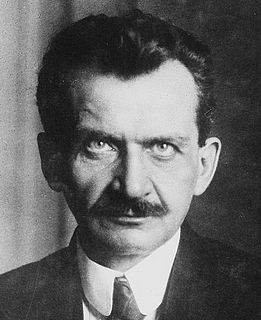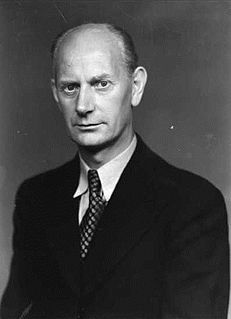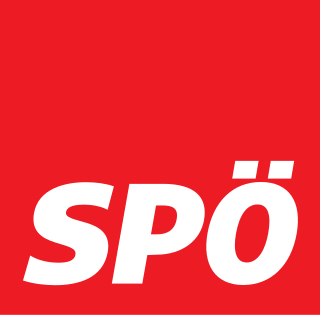
General elections were held in the Netherlands on 25 May 1977. The Labour Party remained the largest party, winning 53 of the 150 seats in the House of Representatives. Following the election, it took 208 days of negotiations to form a new government. This was a European record for longest government formation that stood until after the 2010 Belgian general election. The Christian Democratic Appeal was formed by the Anti-Revolutionary Party (ARP), Christian Historical Union (CHU) and the Catholic People's Party (KVP) in 1976. The first joint party leader was a member of the KVP, Dries van Agt.

Parliamentary elections were held in Austria on 3 October 1999.

The Landbund was an Austrian political party during the period of the First Republic (1918–1934).

Early parliamentary elections were held in Austria on 23 November 1986. They were called by Chancellor Franz Vranitzky of the Socialist Party (SPÖ), as he was not prepared to continue the coalition government with new Freedom Party leader Jörg Haider, who had ousted Norbert Steger at the party convention.

Parliamentary elections were held in Austria on 24 April 1983. The result was a victory for the Socialist Party, which won 90 of the 183 seats. However, the Socialists lost the outright majority they had held since 1971, prompting Bruno Kreisky to stand down as SPÖ leader and Chancellor in favour of Fred Sinowatz. The SPÖ stayed in office by entering into a coalition government with the Freedom Party of Austria, which at this point was a liberal party. Voter turnout was 92.6%.

Early parliamentary elections were held in Austria on 10 October 1971, following electoral reforms which increased the number of seats in the National Council from 165 to 183 and increased the proportionality of the seat distribution. The result was a victory for the Socialist Party, which won 93 of the 183 seats, an absolute majority. Voter turnout was 92.4%. Socialist leader Bruno Kreisky remained Chancellor.

Parliamentary elections were held in Austria on 1 March 1970. The result was a victory for the Socialist Party, which won 81 of the 165 seats to become the largest party for the first time in the Second Republic, only two seats short of a majority. Bruno Kreisky of the Social Democrats became Chancellor at the head of a minority government that was tolerated by the Freedom Party of Austria in return for electoral reform that favoured smaller parties. Voter turnout was 91.8%. It was the first Socialist-led government since 1920, and the first purely left-wing government in Austrian history.

Parliamentary elections were held in Austria on 6 March 1966. The result was a victory for the Austrian People's Party (ÖVP), which won 85 of the 165 seats. Voter turnout was 93.8%. With an outright majority of three seats, the ÖVP could govern alone. Nonetheless, ÖVP leader and Chancellor Josef Klaus initially sought to continue the grand coalition with the Social Democratic Party of Austria (SPÖ) that had governed since 1945. When talks for a renewed coalition failed, Klaus formed an exclusively ÖVP cabinet, the first one-party government of the Second Republic. It was also the first purely centre-right government in Austria since before World War II.

Parliamentary elections were held in Austria on 18 November 1962. The result was a victory for the Austrian People's Party, which won 81 of the 165 seats. Voter turnout was 93.8%. Although the People's Party had come up only two seats short of an outright majority, Chancellor Alfons Gorbach retained the grand coalition with the Socialists under Vice-Chancellor Bruno Pittermann.

Parliamentary elections were held in Austria on 13 May 1956. The result was a victory for the Austrian People's Party, which won 82 of the 165 seats in the National Council. Voter turnout was 96.0%. Although the ÖVP had come up one seat short of an absolute majority, ÖVP leader and Chancellor Julius Raab retained the grand coalition with the Socialists, with the SPÖ leader Adolf Schärf as Vice-Chancellor.

Federal elections were held in Germany on 20 May 1928. The Social Democratic Party of Germany (SPD) remained the largest party in the Reichstag after winning 153 of the 491 seats. Voter turnout was 75.6%.
The Democratic Party is a center-right party in Bulgaria led by Alexander Pramatarski. The party is a member of the European People's Party (EPP).

Parliamentary elections were held in Norway on 12 and 13 September 1965. The Labour Party remained the largest party, winning 68 of the 150 seats. However, the four non-socialist parties succeeded in winning a majority between them and forming a government. Per Borten, the leader of the Centre Party, became Prime Minister.

General elections were held in Sweden on 19 September 1948. Despite a campaign by a large part of the Swedish press against socializing insurances, controlled foreign trade and rationing regulations still in use since the war, freshman Prime Minister and Social Democratic leader Tage Erlander managed to defeat the People's Party-led opposition under Bertil Ohlin by a higher election turnout. He maintained his government with only minor losses and the Swedish Social Democratic Party remained the largest party, winning 112 of the 230 seats in the Second Chamber of the Riksdag. Erlander was later to stay on as Prime Minister until 1969, in 1951-1957 his government included the party Farmers' League.

General elections were held in Sweden on 16 September 1979. Although the Swedish Social Democratic Party remained the largest party, winning 154 of the 349 seats in the Riksdag, the liberal interim government of Ola Ullsten was succeeded by another centre-right coalition government composed of the People's Party, the Moderate Party and the Centre Party, led by Centre Party leader Thorbjörn Fälldin. The three parties together won 175 seats, compared to the 174 won by the Social Democrats and Communists. It was the only time that non-socialist parties retained power in an election between 1928 and 2010. The Moderates dramatically increased their representation in the Riksdag, becoming the largest party of the non-socialist bloc, a position they have maintained ever since.

Parliamentary elections were held in Austria on 9 November 1930. The Social Democratic Party emerged as the largest faction in the National Council, with 72 of the 165 seats. Voter turnout was 90.2%.

The German People's Party was a German nationalist political party in Austria.

The Progressive Liberal Party was a political party in Bulgaria.

The Liberal Party, also known as the Radoslavists was a political party in Bulgaria from 1887 until 1920.

The United People's Progressive Party was a political party in Bulgaria.




















